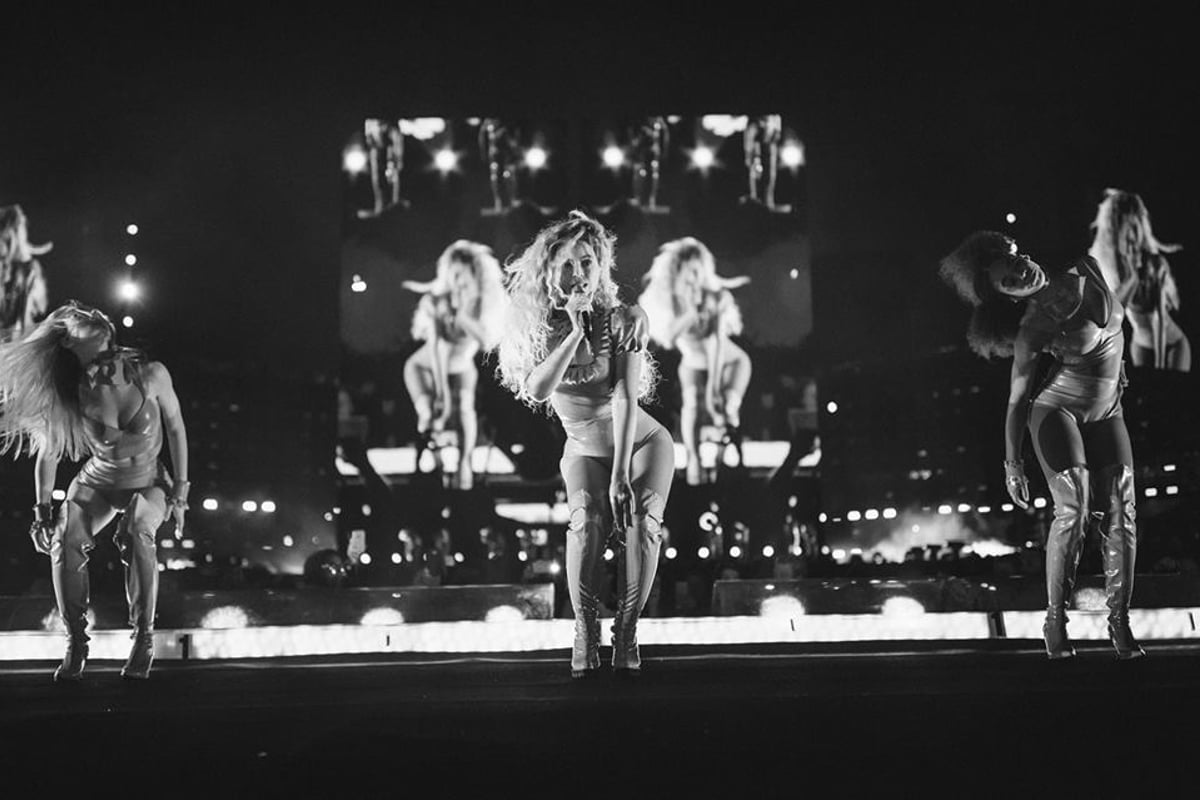Sold out Rihanna & Beyonce shows fail to draw crowds, here’s why

Image Source: Beyonce Facebook
When it comes to purchasing concert tickets, the odds are becoming steadfastly stacked against fans and artists. The dysfunctional rise of the secondary ticketing market means ticket scalping bots careen through the checkout process faster than you can type your mother’s maiden name, reselling the quality seats on sites like Viagogo or StubHub for up to 10 times face value.
The highly lucrative and contentious sector preys on the fact that demand for live sports or music events outstrips supply. In the past, tickets to catch the Rolling Stones in Australia have been listed for over $3,000, while one ticket to see Adele at London’s O2 Arena was listed on Get Me In for £24,840 (A$48,710), some 290 times face value.
The affect on artists has been highlighted in recent days as photographs from Beyonce’s largely sold-out Formation World tour and Rihanna’s ANTI World Tour show hundreds of empty seats.
As reported by The Metro, Beyonce’s second sold-out show at London’s Wembley Arena should have been attended by almost 90,000 fans, yet many of the seats in fan photos and live footage are empty.
— Ethan (@ethanrih) July 3, 2016
— Ethan (@ethanrih) July 3, 2016
Similar reports on Rihanna’s sold-out Wembley Stadium surfaced online this week, with fans taking to Twitter to note the large blocks of empty seats at the venue.
Rihanna’s Wembley concert looks like it was a lot of fun tonight! There was definitely plenty of room to move! pic.twitter.com/X8S2GuVC8M
— Shady Music Facts (@MusicFactsShady) June 25, 2016
While the empty seats could be put down to no-shows, it’s more likely ticket touts are to blame for buying up the tickets and not being able to sell them at inflated prices.
Speaking to TMN, Mushroom Group’s Online Communications Co-ordinatorSarah Dileo said ticket resellers are a major threat to the live music industry.
“From a music fan’s perspective, they run the risk of purchasing tickets that are fraudulent and/or sold at a grossly inflated price, and they have extremely limited options if a concert or event is cancelled,” said Dileo. “From an artist’s perspective, purchasing tickets at an inflated price means that these resellers are taking advantage of both fans and the hard work and talent of the touring artist.
“We have heard many horror stories of fans being turned away at shows with fraudulent tickets, or purchasing them from unauthorised outlets at excessively inflated prices,” she added.
The issue is undergoing a government-led reviewin the UK – and support for new provisions has been made publicly by figures including One Direction’s management firm, Coldplay and Royal Blood. However, promoters are still having to tie up the disconnect between fans as their prices are undercut.
Frontier Touring’s stratagem to combat scalping and unauthorised reselling is a proactive one. The local promoter restricts transferability, educates its audience using social media and incisively takes action against “unscrupulous individuals.”
“On particularly popular tours, we may restrict the ticket limits further and special measures may be employed including: fans needing to line up in person to purchase tickets, holding back ticket delivery until close to show dates, and photo identification being required to enter the venue,” Dileo said. “We also monitor prominent auction and unauthorised reseller websites for tickets that are being sold in breach of Terms of Sale and remove them wherever possible.”
Frontier regularly uses its more than 186,000-strong following on Facebook and Twitter to educate fans about the prevalence of ticket scalping. Its post in April named six ticket resellers that ticket buyers should avoid, including The Ticket Merchant, Viagogo and Ticketmaster Resale. The post was shared 244 times on Facebook and received over 515 engagements.






























